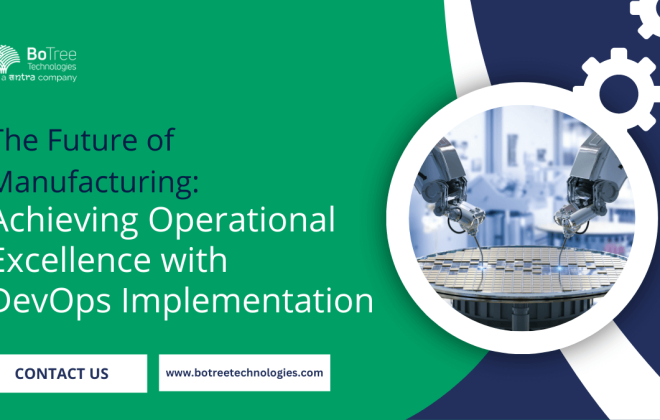
DevOps: A Catalyst in the Field of Data Analysis
Many companies in several fields are opting for DevOps solutions owing to the numerous benefits it offers. Implementing DevOps software solutions can aid in big data methods of data analysis. DevOps solutions work on filling the gap between the process of product development and the understanding of the developing team.
DevOps Workflows in Healthcare
Pharmaceutical companies, healthcare IT firms, biotechnology institutes, hospitals and clinics, ambulatory centers, as well as dental and super-specialty hospitals, can make use of Salesforce DevOps solutions.
DevOps tools in healthcare act as a substitute for conventional methods of software development. This pushes the acceleration and uptake of big data tools. DevOps tools automate processes that traditionally would be carried out manually and would consume a lot of time. DevOps tools are backed up by methods that include frequency and high pace and improve operational efficiencies.
The combination of big data with DevOps tools can outweigh any integration challenges associated with the development and implementation of the software solution. The skill to leverage DevOps in the scrutinization of big data healthcare records can help benefactors to decrease costs associated with the diagnosis and treatment. It also helps to forecast outbreaks of epidemics, evades any avertable diseases, and improves the quality of patient care.

The key advantages of a cloud-based solution, such as DevOps, are explained below;
Regulatory Compliance and Data Security
With each region possessing its own set of regulations, the level of stringency in the healthcare IT industry has increased tremendously. Regulations focus on the security of data storage and limited transparency. DevOps solutions aim at providing the best value for their customers.
In the process of delivery of software, these solutions run tests on the software to minimize the risk of code bugs. It also highlights potential security breaches and eliminates multiple bottlenecks. While implementing the cloud-based infrastructure, the regulatory requirements are complied with and applied automatically to reduce the operational overhead costs.
Automation of Routine Tasks
Hospitals are busy places where there is no time for repetitive and unnecessary tasks. Even if a software solution is installed in a hospital or a company, repetitive tasks such as the installation of the software updates, following the infrastructure health checklists, configuration checks, monitoring the workloads, performing database backups, and many others, have to be entertained for smooth functioning.
DevOps tools can help in automation of such routine tasks and help in improving the workflow management. DevOps tools focusing on continuous integration and continuous delivery (CI/CD) pipelines can aid facilities to automate the tasks. The CI/CD platforms abridge the process of software development and significantly reduce the time to market the new releases of the products.
Inclination Towards DevOps Metrics
DevOps Metrics is a comprehensive tool for viewing the success of your DevOps programs. It also helps in highlighting the modifications, extensions, and improvements done. Companies are focusing on deployment, support, and operations areas for the use of DevOps Metrics. It facilitates significantly in reducing lead time, failure time, deployment frequency, and many other functions.
Improved Internal Co-Ordination
DevOps solutions, once established, improve collaboration between the different departments of your company. Management efficiency increases substantially.
Decreased Timeline for the Delivery of the Products
With the use of DevOps software, it takes a shorter time frame to market your products. After the automation of the cloud infrastructure, the software delivery lifecycle tends to result in less time consumption of the product updates.
Data-Driven Approaches
The process of extraction of accurate and precise data and meaningful inferences from the vast health data available in the market is a tedious task. It can result in a lot of errors. The conversion of data-driven findings into helpful insights can aid in providing a high quality of care to the patients. This elucidates the impression that such approaches in the healthcare industry can result in advancement. Patient demographics and epidemiology data are inevitable to change, and this directs the manufacturers to incorporate DevOps with their solutions.
Easier project deployment is a significant factor that makes companies choose this software solution. There are various types of data in the life science industry that companies need to store safely and adequately. Electronic health records (EHR), electronic medical records (EMR), pharmacy data, medical device surveillance reports, insurance claims are some of the examples. You have to structure this data for the final inference, along with the other process. You need to update and analyze the processes. Organizations prefer such software cloud-based solutions than traditional methods as it involves a significant reduction in the cost and increases the overall usability of the project.
Is Data Secure or Not?
DevOps has significantly aided the proliferation of web-based services in the healthcare industry. Although it offers numerous benefits to the user and the seller, the concern regarding the security remains a hot topic. Even after the implementation of several rules and regulations regarding compliance and safety by the governments in the emerging and developed economies, healthcare providers are still not convinced about the benefits and have their doubts. Protected health information (PHI), also commonly known as personal health information, denotes demographic data, medical histories, test and lab results, insurance information, mental health conditions, reimbursement coverage, among others.
This data needs to be stored precisely, and therefore government associations have put forward compliances such as HIPAA, good practice regulations (GxP), and general data protection regulation (GDPR). A product developed following DevOps can allow customers, consumers, payers, and providers, to gain a competitive advantage over other counterparts. The end line is that with the mandatory regulations, there is no chance that any data breach will occur or any information confidentiality will be compromised.
Executing a DevOps tactic of IT operations in the healthcare sector provides a company with an influential and commanding control. It allows augmenting the infrastructure performance and outlays, and refining employee teamwork. It also helps in reducing the development cycle for your apps, and consenting to use the figures at your disposal to the fullest degree and with extreme security.




